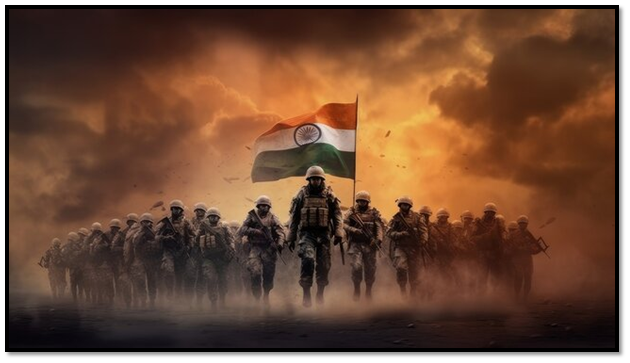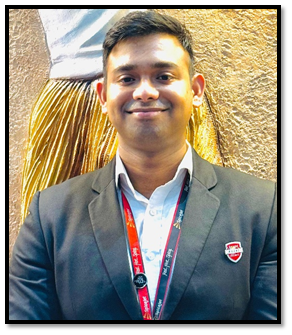Subhas Chandra Bose: A Hero beyond Boundaries
On January 23rd, each year, India commemorates the birth anniversary of one of its most revered freedom fighters, Subhas Chandra Bose. Known for his indomitable spirit, unwavering patriotism and a vision for a free India, Bose remains a figure whose legacy continues to inspire generations. His life was a testament to courage, sacrifice and a relentless pursuit of independence, not just for India but for the larger cause of global justice.
Subhas Chandra Bose was born in Cuttack, Odisha, on January 23, 1897, into a family that valued education and discipline. His father, Janakinath Bose, was a prominent lawyer and his mother, Prabhavati Devi, was a source of strength and guidance. Subhas Chandra Bose was a brilliant student, excelling in his studies and gaining admission to the prestigious Presidency College in Calcutta (now Kolkata).
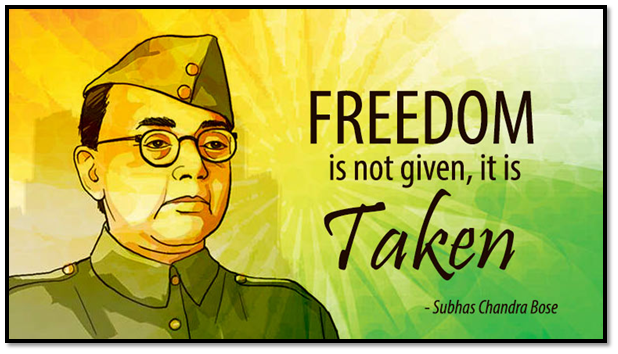
However, even as a young man, he was not content to simply accept the status quo. His exposure to the growing national movement against British colonial rule ignited in him a passionate desire for India’s freedom. As a student, he was deeply influenced by the ideas of leaders like Swami Vivekananda and Bankim Chandra Chattopadhyay, who instilled in him the belief in India’s ancient cultural heritage and the urgent need for self-rule.
His political career began in earnest in the early 1920s, when he joined the Indian National Congress. Though initially aligned with the moderate faction led by leaders like Mahatma Gandhi, Bose’s growing disillusionment with their methods led him to pursue more radical approaches to achieving independence. He was a staunch advocate of using direct action and was critical of the non-violent methods espoused by Gandhi and others.
In 1938, Bose became the president of the All India Congress Committee, but his relationship with the Congress leadership soon became strained. His vision of a more assertive, aggressive strategy to fight British colonialism was at odds with the Congress’ more conciliatory approach. Disillusioned, he resigned from the Congress presidency in 1939, setting the stage for a different path toward India’s liberation.
Subhas Chandra Bose’s most defining achievement was his role in the formation of the Indian National Army (INA) and his unwavering belief in armed struggle as a means to expel British rule. In 1941, after escaping house arrest in Calcutta, he made his dramatic escape to Germany and then to Japan. His travels took him to the heart of the Axis powers, where he sought to forge alliances with Nazi Germany and Imperial Japan, hoping to rally their support in the fight for India’s independence.
Bose’s leadership of the INA was revolutionary. He rallied Indian soldiers in British-occupied Southeast Asia, organizing them into a formidable force that would fight alongside the Japanese army. His famous slogan, “Give me blood and I shall give you freedom,” resonated deeply with millions of Indians, inspiring a new generation of patriots ready to take up arms against the colonial rulers.
In 1944, the INA, under Bose’s leadership, advanced into India’s north-eastern borders, marking a significant shift in India’s struggle for independence. Though ultimately unsuccessful in their military campaigns, the INA’s bravery and resilience left an indelible mark on the Indian freedom movement. Subhas Chandra Bose’s vision of a free and self-reliant India, independent of colonial rule and foreign domination, was one that transcended the confines of conventional politics.
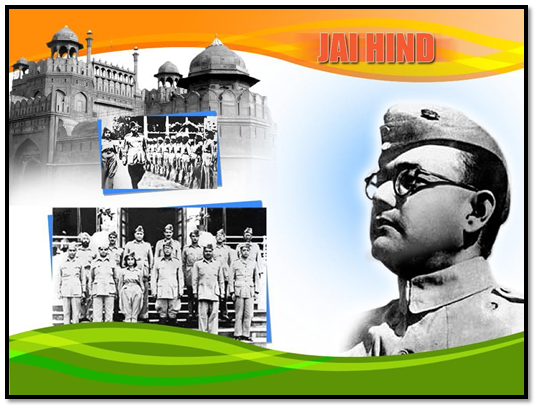
His vision was not limited to India alone. He was acutely aware of the global struggle against imperialism and fascism. His diplomatic efforts took him to Germany and Japan during World War II, where he sought support for the Indian independence cause. His strategy was bold and unconventional, as he believed that only through global alliances could India achieve freedom from British rule.
His efforts were not without controversy. Bose’s ties with the Axis powers, especially Nazi Germany, have been a subject of debate and criticism. However, his primary goal remained the liberation of India from British colonial rule and he was willing to explore any means necessary to achieve that aim. Bose’s complex legacy reflects the realities of wartime diplomacy, where alliances were formed based on strategic interests rather than ideological alignment.
Subhas Chandra Bose’s life ended in mystery. It is believed that he died in a plane crash in Taiwan on August 18, 1945, though there have been numerous theories suggesting otherwise. Some have speculated that Bose faked his death to live in exile, continuing to work for India’s independence from behind the scenes. Regardless of the circumstances surrounding his death, his spirit of resilience and his relentless fight for India’s freedom live on in the hearts of millions.
Bose’s legacy is one of a revolutionary leader who dared to challenge the status quo, someone who embodied the spirit of defiance and courage. His motto, “Jai Hind”(Victory to India), continues to echo across the country. He remains an icon of resistance, not only to British rule but also to any form of tyranny that seeks to suppress the voice of the people.
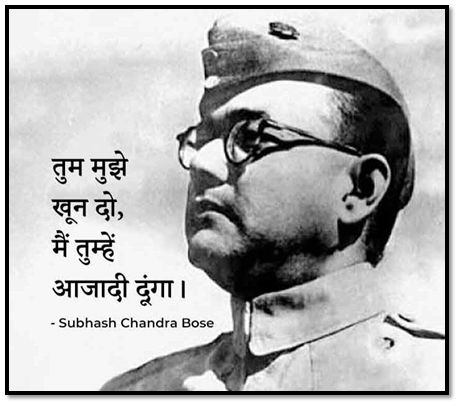
Subhas Chandra Bose’s life is a powerful reminder of the extraordinary sacrifices made by countless individuals in the pursuit of India’s independence. His journey from a student in Calcutta to the leader of the Indian National Army is a story of passion, resilience and an unshakable commitment to freedom. As we remember his birth anniversary on January 23, we honor not just a man, but a movement—one that transcended borders and inspired millions to rise for the cause of justice, liberty and nationhood. Bose’s vision for India was one of unity, self-reliance and national pride, values that continue to shape the country today.
In the words of Subhas Chandra Bose himself, “Freedom is not given, it is taken.” His legacy lives on in the collective spirit of India, a nation that, despite its challenges, continues to strive for the ideals of freedom, equalityand justice that he fought for.
By: Mr. Prem Kumar Singh (Kolkata)



